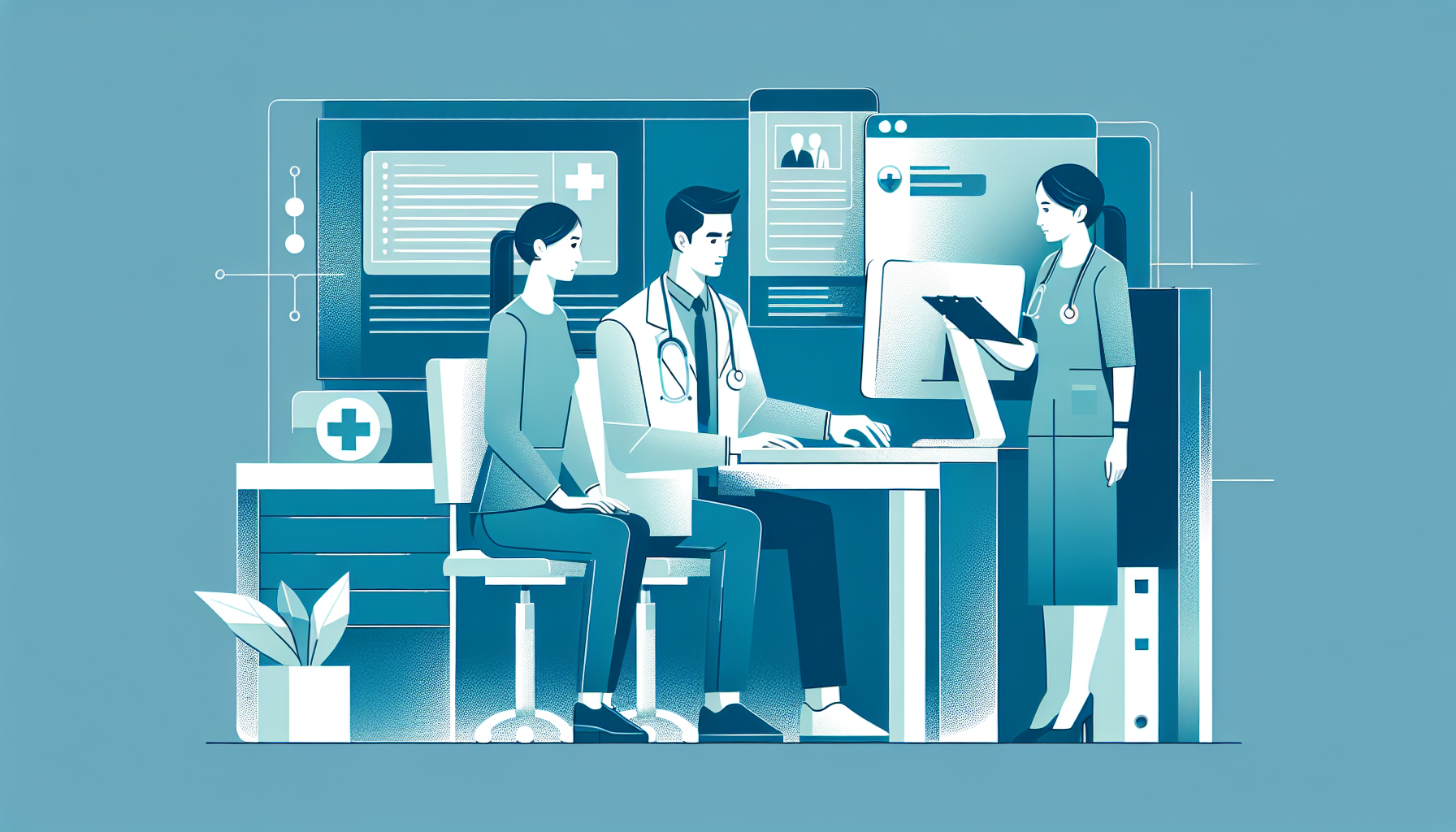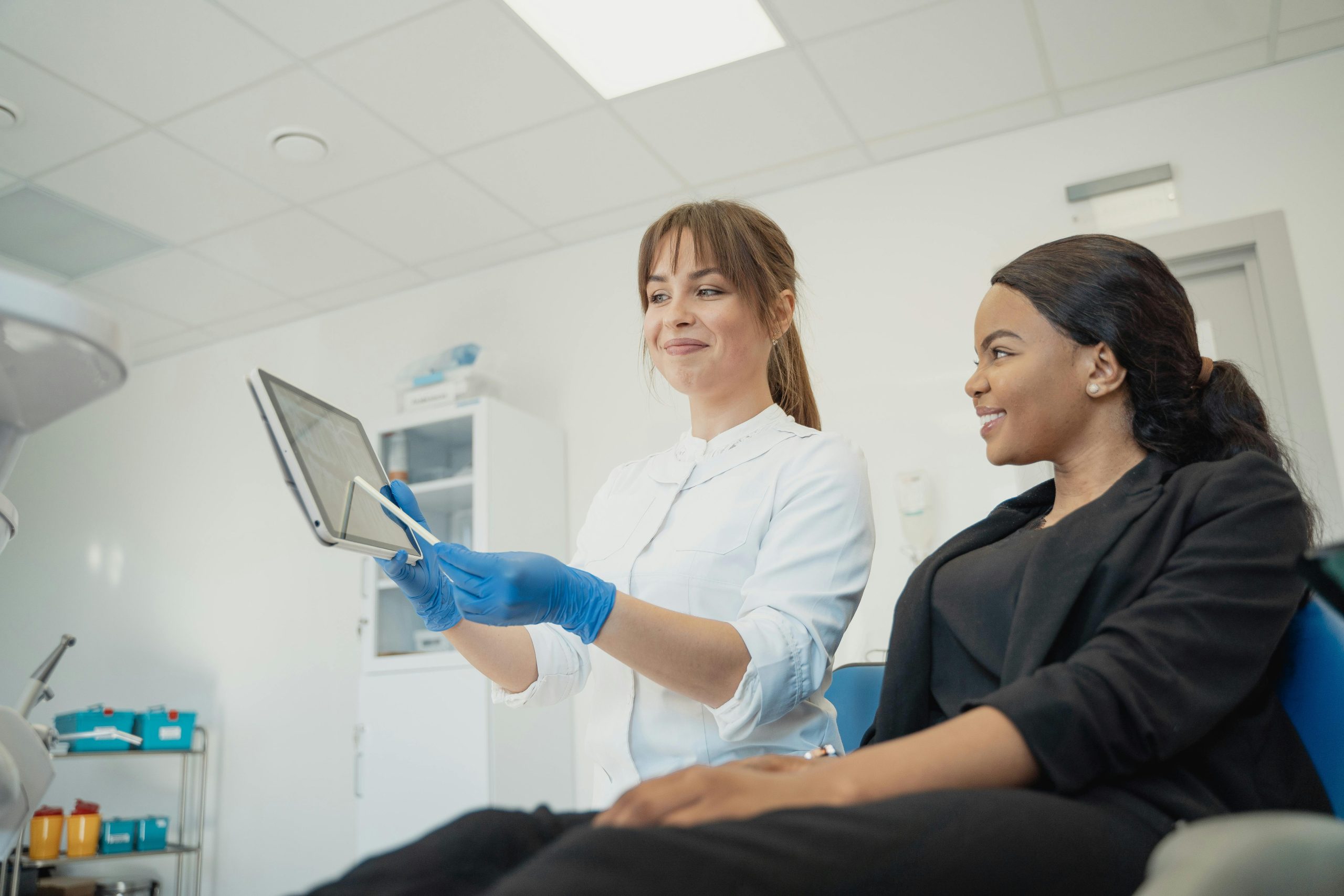Building a Strong Team
Building a Strong Team Getting a top-tier healthcare administrative team starts by recognizing a medical receptionist’s pivotal role. These individuals are essential for keeping things running smoothly and the first point of contact for patients, playing a crucial role in ensuring patients receive the best care.
Identifying Key Skills
Take a gander at TealHQ, and you’ll see some must-have abilities for those on the front lines:
| Skill |
| Tech Savvy |
| Great at Gab |
| Knows the Lingo (Medical Terminology) |
| Can Juggle (Organized and Multitasking) |
| Heartfelt and Helpful |
Make sure your team is packed with these skills. That’s how you turn happy patients into regular guests and keep your Operations running like a well-oiled machine.
Training Programs Overview
If you want to improve your team’s performance, look into specialized training programs. These programs don’t just cover the surface; they arm receptionists for the wild ride their job can be.
Your front office crew, like medical receptionists, aren’t just part of the furniture—they’re the architects of the first impression. They kick off patient interactions and set the tone for trust and good vibes. Workshops on chit-chat, making small connections, and showing that they care go a long way toward creating a welcoming environment (SC Training).
Add courses on “Creating a Positive Customer Experience” and “Guest Experiences” to polish your communication skills, boost patient smiles, and keep them coming back (SC Training).
Mixing soft skills training with the nitty-gritty essentials is key to crafting an admin team that’s sharp on the job and always keeps patient happiness at the forefront. By pumping resources into well-rounded training programs, you’ll have receptionists who not only rock at their duties but also uphold the values and vibe of your healthcare facility.
Essential Skills for Medical Receptionists
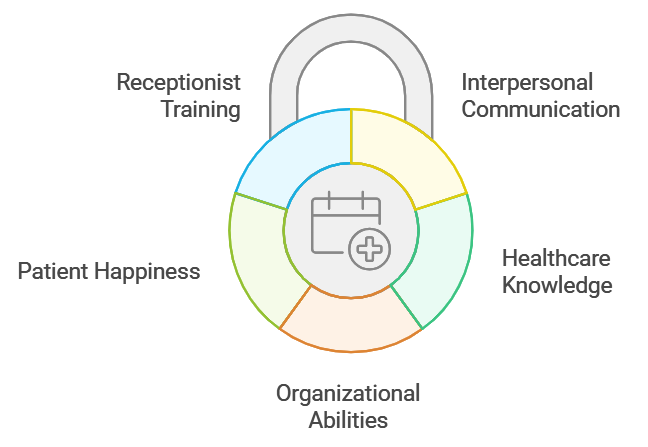
Medical receptionists have a tough gig, balancing a mix of chatty charm, brainy healthcare know-how, and superpowered organization to keep things running smoothly. Here’s the lowdown on what makes them tick.
Interpersonal Communication
When a patient walks through the door, the receptionist is the first friendly face they see. Think of them as the charming hosts of the medical world. They gotta be wizards at chatting, writing, and just getting what’s up without too much fuss. They’re the pros who ensure every patient feels heard and comfy, answer questions like a human Google, and pass along information with empathy. Also, folks from all walks of life walk in, so the receptionists must be culturally astute cookies, making everyone feel at home.
Healthcare Knowledge
Receptionists and healthcare lingo go together like a doctor’s stethoscope and a heart. You can only work in a Medical Practice if you get the hang of the terms doctors toss around, right? They need to be on top of the latest healthcare updates and techy stuff to get everything right, from booking a check-up to handling patient info like pros. They’re essential glue that keeps the place sticking together.
Organizational Abilities
Let’s get one thing straight: chaos and a receptionist’s desk don’t mix. There’s a whole juggling act going on—bookings, files, calls, you name it. They’re like multi-tasking ninjas, making sure everything stays shipshape. Can’t find a patient’s file? There’s no chance with these masters of chaos control. Plus, if they don’t sweat the small stuff, things like incorrect billing or missed appointments can spiral into a nightmare.
In short, these skills aren’t just for show; they’re the backbone of any nail-biting day at a medical office. Training and practice beef up these skills, making receptionists indispensable heroes for patients and staff in their medical kingdom.
Improving Patient Happiness
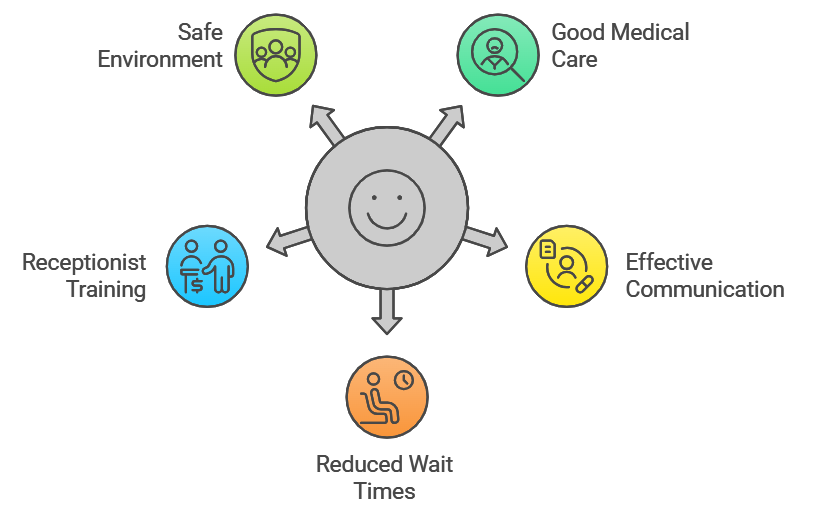
In a doctor’s office, keeping patients happy is what it’s all about. It’s not just about giving a thumbs-up. It’s about making sure they feel good about the care they get and want to come back again. By figuring out what makes people happy and ensuring the front desk has its act together, medical offices can change how patients feel about their visit.
What Makes Patients Happy
What makes patients happy at the doctor’s office? Well, it’s a mix of good Medical Care, chatting with the doctor, and not waiting forever in the lobby. These are the big ones. When these things are on point, people tend to have a much better view of what’s happening with their healthcare. If these are handled well, doctors’ offices can boost customer satisfaction and get patients to talk positively to family and friends.
Medical receptionists have a big job. They must treat every patient with warmth, clear communication, and professionalism. When they make the place feel friendly and welcoming, patients notice and leave happier—it’s like magic.
Boosting How Receptionists Work
Receptionists are pivotal in shaping patient perceptions of the entire healthcare team. Studies have shown that how receptionists treat patients can significantly influence how patients perceive the whole team’s skills (NCBI). This underscores the interconnectedness of all staff members in a healthcare office and the importance of providing comprehensive training to receptionists.
Receptionists are about more than just making patients feel welcome. They also play a crucial role in maintaining a safe environment. They need to be equipped with the skills to handle emergencies, follow safety protocols, and ensure the smooth running of the office, including during challenging times like the COVID-19 pandemic (SC Training).
Investing in receptionist training can lead to a noticeable improvement in their performance, an increase in patient satisfaction, and an overall enhancement in the quality of care. By building an all-star admin team through continuous learning and growth, healthcare facilities can make patient care their top priority.
Addressing Workplace Aggression
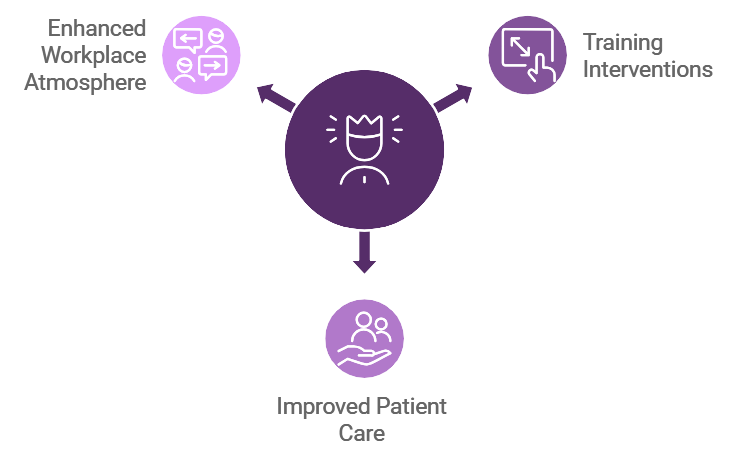
Keeping the peace at a healthcare facility isn’t just about being nice—it’s downright necessary. Both employees and patients thrive in a secure environment. Let’s examine the sources of workplace aggression and how training can help keep it in check.
Understanding Aggressive Behavior
Aggression towards healthcare workers? It’s a real problem that pops up in varying degrees depending on the job and place. Frustratingly enough, it’s mostly coming from patients, with numbers swinging wildly between 10% and 95% (according to fancy research). Even the patient’s buddies get in on the action, with 20% to 50% of workers catching heat from them too. Unraveling why folks get worked up in these settings—be it anger, anxiety, or some other spice of life—is critical to chill things out.
Take healthcare receptionists, for example. They’re the first line of contact and, naturally, deal with the brunt of workplace aggression. Getting ahead of it involves picking up on the early signals of someone’s forehead vein about to explode and having strategies ready to cool it off.
Training Interventions
What’s the game plan? Equip healthcare receptionists with the right tools through training when they know how to handle a hot-headed situation; with skills in de-escalation, resolving beef, and using words like a pro, the whole workplace vibes better.
Putting effort into training isn’t just about checking a box—research says it makes patients happier (look here). Receptionists learn to tackle challenging interactions with kindness and coolness, which means patients leave feeling like they’ve been heard.
Giving those on the front lines what they need to handle aggressive encounters helps forge a better working atmosphere and improves patient care. When staff feel supported and educated, they’re more likely to handle rough waters smoothly, which is a win for everyone involved.
By making handling workplace aggression a top priority with focused training, healthcare facilities arm receptionists to meet these challenges head-on. This pays off in a dignified, secure, and professional workplace.
Empower your healthcare receptionists with training programs that foster excellence and professionalism. Build a welcoming front office team that ensures exceptional patient experiences. Train Your Receptionists for Success! Discover tailored training programs with Karma Health and transform your patient interactions. Contact us today!
